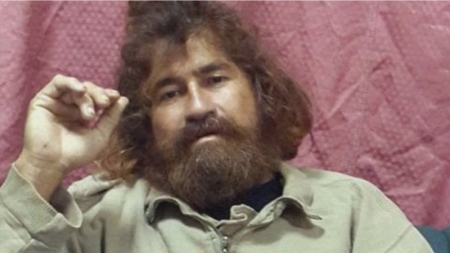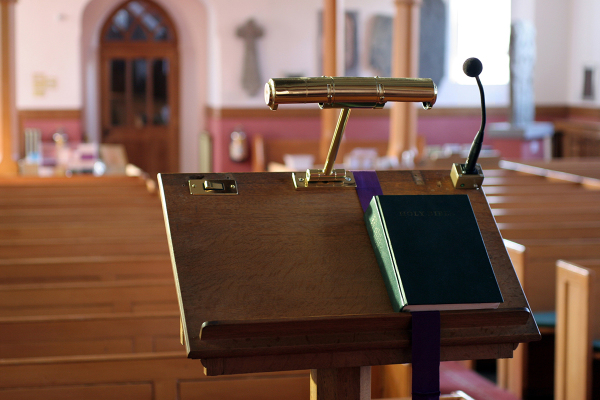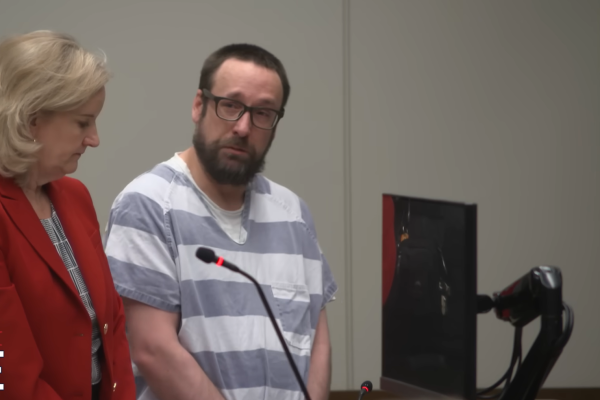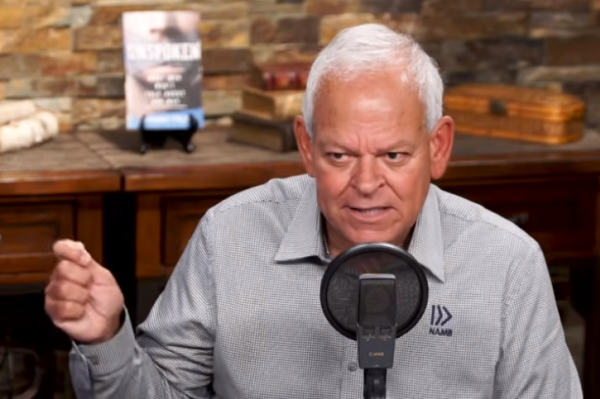Fisherman Lost at Sea for 438 Days Prayed to God Before Being Rescued

An El Salvadoran fisherman who was lost at sea for over a year says that he prayed to God for forgiveness before he eventually washed ashore 438 days after losing radio contact.
José Salvador Alvarenga, 36, and his colleague, the late Ezequiel Cordoba, 22, went on a fishing expedition off the coast of Mexico on Nov. 17, 2012. But, little did Alvarenga know that the fishing trip would take him on a 6,700-mile journey in the Pacific Ocean that ended with him washing ashore on the Marshall Islands.
Alvarenga, who explained his ordeal to Guardian reporter Jonathan Franklin to produce the best-selling book 438 Days: An Extraordinary True Story of Survival at Sea, recalled getting caught in a storm about 50 miles from the coast about two days after he launched to sea.
He said thousands of gallons of seawater were dumped into the boat as waves crashed into it, nearly causing the boat to sink. Cordoba acted frantically to dump the water out of the boat as as Alvarenga tried to navigate the boat back to shore.
Although the vessel eventually got close enough to the shore that Alvarenga could see a mountain in the horizon, it was then that the boat's motor died and Alvarenga was forced issue a mayday call on the radio.
He explained that his boss, Willy, said that he would send some help. While the two men waited for rescue, they were forced to dump their 1,100 pounds of fresh fish, ice and gasoline into the ocean since the the boat was rather top-heavy. Before the men could be rescued, the boat's radio died and they no longer had any radio contact.
As the storm continued through the next day, the men spent hours dumping water out of the boat. Despite the hours of work, the boat was still half-filled with water.
At that point, Alvarenga got angry and bashed his boat's motor in with a club and threw his radio overboard as a way to take out his frustration.
As nightfall came, gale-force winds blew off the coast and forced the boat even farther out to sea, giving the men little idea as to where their location really was.
As days went by, the men were forced to eat raw and sun dried fish, seabirds and turtles. They had to drink rain water and their own urine since seawater is undrinkable. The men were even forced to use the plastic garbage they found floating on the ocean to their advantage.
In one instance, the men found a plastic bag with a wad chewed up gum inside and split the gum in half so that they could each enjoy the taste in their mouths.
As more days went by, the two men bonded and talked about their lives. They even prayed together and asked God to forgive them for not being the best children to their mothers.
"We would talk about our mothers and how badly we had behaved," Alvarenga admitted. "We asked God to forgive us for being such bad sons. We imagined if we could hug them, give them a kiss. We promised to work harder so they would not have to work any more. But it was too late."
After two months at sea, Cordoba's body and mind started to fade. After Cordoba got sick from eating a raw meat, he decided that he was going to stop eating all together, even though Alvarenga offered him pieces of meat as he laid in weakness.
One morning, Cordoba told Alvarenga that he felt that his death was coming soon.
"He asked me to tell his mother that he was sad he could not say goodbye and that she shouldn't make any more tamales for him — they should let him go, that he had gone with God," Alvarenga recalled.
"Don't leave me alone! You have to fight for life! What am I going to do here alone?" Alvarenga shouted at Cordoba.
After Cordoba finally perished, Alvarenga held onto the corpse for five days because of his fear of being alone. Alvarenga recalled having conversations with the corpse. On the sixth day, Alvarenga dumped the body into the water.
"Why had he died and not me?" Alvarenga wondered. "I had invited him to fish. I blamed myself for his death."
Stranded at sea all alone, Alvarenga had to let his imagination wander so that he could turn his lonely boat into a fantasy world. He often envisioned an alternate reality where he was eating the best meals of his life and engaging in the best sex of his life.
"I would stroll back and forth on the boat and imagine that I was wandering the world," Alvarenga said. "By doing this I could make myself believe that I was actually doing something, not just sitting there, thinking about dying."
After over a year, Alvarenga finally saw a glimpse of land. Although he thought the island was a hallucination, his prayers were answered when he realized that actual land was on the horizon.
When he got closer to the island, Alvarenga jumped out the boat and paddled "like a turtle" to shore. Finally, a wave took Alvarenga and tossed on him onto a beach on Tile Islet, the southernmost point of the Marshall Islands, and he was later rescued by locals.
Had Alvarenga drfited South of Tile Islet, he would have likely had to travel another 3,000 miles until he hit the eastern coast of the Philippines.
"I was totally destroyed and as skinny as a board," Alvarenga said. "The only thing left was my intestines and gut, plus skin and bones. My arms had no meat. My thighs were skinny and ugly."






















